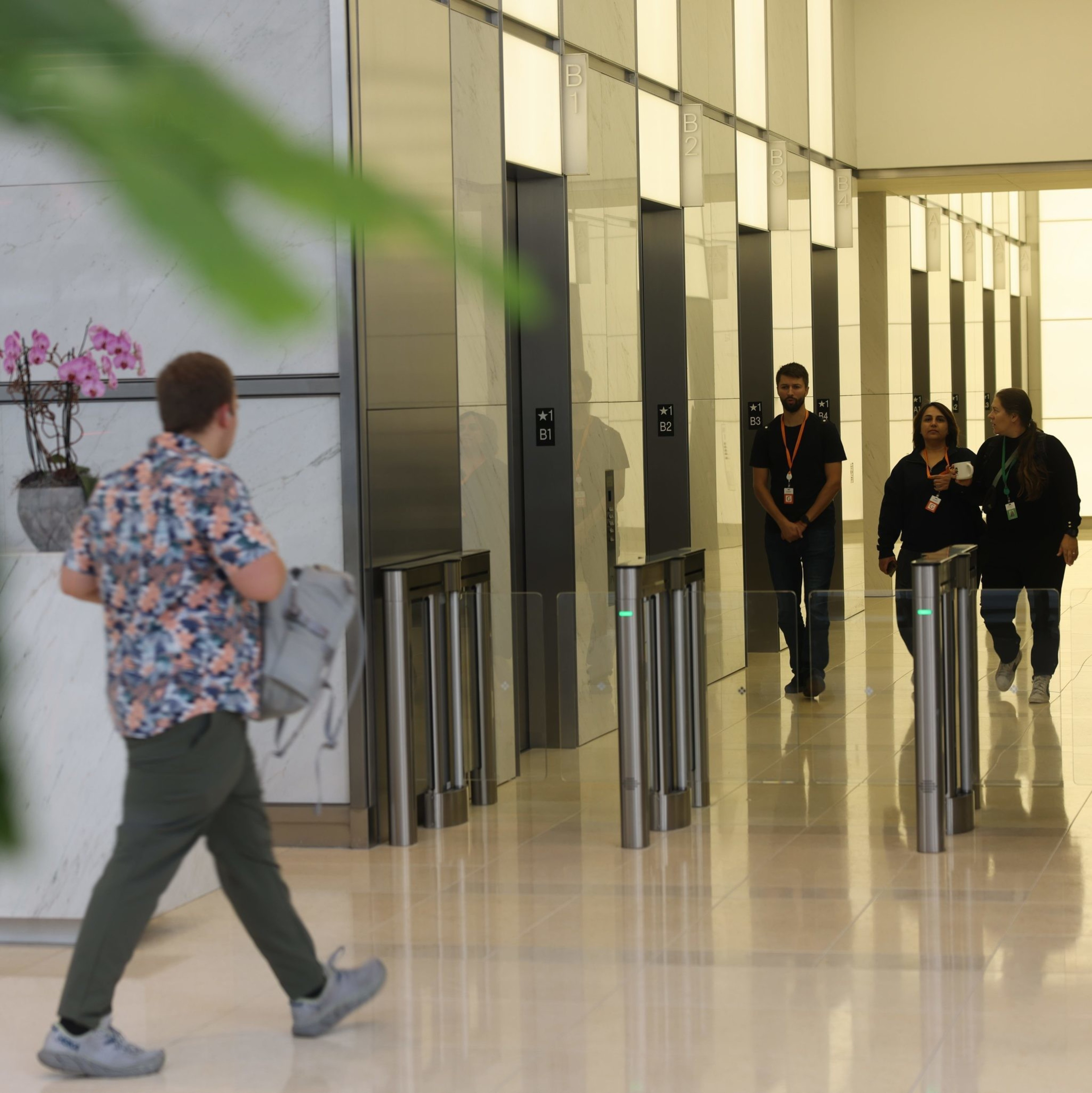In 2022, Salesforce CEO Marc Benioff boldly proclaimed (opens in new tab) that “office mandates are never going to work.” Now his company is soft-pedaling its own policy.
According to an internal memo reviewed by The Standard, San Francisco’s largest private employer has made the call to bring the majority of its employees back into the office, reversing a broad shift to remote work during the pandemic.
Select employees in sales, workplace services, data center engineering and onsite support technicians under the chief information officer will be required to come to the office four to five days a week, effective Oct. 1.
All other departments – including marketing, legal and product teams – will be designated “office-flex” — meaning they must come in at least three days a week. The company’s other engineering roles are also in this bucket, although they will be required to come in only at least 10 days each quarter.
Unless working from a client site, the ability to be fully remote will be granted only on an exemption basis, the new guidelines say. One such exemption is for engineers working on Salesforce’s Heroku platform (opens in new tab).
Per the memo, sent out last week, the guidelines are meant to “better clarify our in-person expectations.” To bolster in-person attendance, Salesforce will also roll out an internal dashboard to track data from employee badge scans (in the U.S. only), starting next month.

The company stated that employees will have “full visibility” of this data, which will measure attendance against quarterly goals set by each team. Notably, the dashboard will also track the average amount of voluntary time off employees take, which is time they can use for community service efforts.
“Salesforce has always been a hybrid work company,” a spokesperson said in a statement. “Our guidelines focus on in-person connection, while also recognizing the value of working away from the office.”
The push to return to the office comes as Salesforce cut around 300 roles this month, Bloomberg reported, (opens in new tab) on top of 700 laid off earlier this year. Early last year, the software company cut around 10% of its positions — about 7,000 employees.
Recently, the company has also been fending off a push by activist investors (opens in new tab) to prioritize profits amid slumping stock growth, although those efforts have since receded (opens in new tab).
During the pandemic shutdown, Salesforce joined a string of blue-chip tech firms in San Francisco in retreating en masse from its downtown office presence due to the shift to remote work. As a result, the city has the highest office vacancy rate in the nation, at 37%, according to real estate firm CBRE.

Salesforce employees will be returning to significantly less office space than they were accustomed to pre-pandemic.
Last year, Securities and Exchange Commission filings revealed that the company had trimmed 45% (opens in new tab) of its office footprint, which included ditching a tower known as “Salesforce East” at 350 Mission St.
Other tech firms in San Francisco have been doing the same. The social platform X is marketing most of its Mid-Market headquarters for sublease after thousands of employees were laid off last year. Half of Uber’s headquarters are being subleased to OpenAI, and a chunk of Airbnb’s campus went to the emerging Scale AI (opens in new tab).
Salesforce’s annual Dreamforce conference downtown — scheduled for Sept. 17-19 — is one of San Francisco’s biggest draws, although its future was briefly called into question after Benioff said the city’s ongoing issues with homelessness and drug use had given him pause.
Correction: This article was updated to provide more detail on the return-to-office policies for engineering teams.
